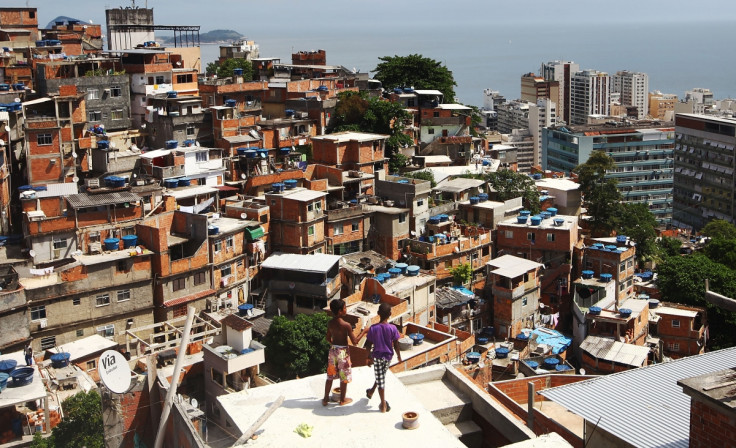Surge in killings by Brazil police sparks fears in favelas ahead of Rio Olympics 2016

Residents in Rio de Janerio's favelas are "living in terror" after a number of people were killed by Brazil's police forces. According to Amnesty International, at least 11 people have been shot by the police since the beginning of April.
The human rights organisation noted that more than 300 people were killed by police in 2015 in the city of Rio alone, which accounts for one in every five homicides in the town. Amnesty has also begun placing pressure on authorities to hold those responsible to account, citing a number of cases where protesters have been severely injured by rubber bullets, stun guns and firearms used by police forces.
Atila Roque, executive director of Amnesty Brazil, said: "Despite the promised legacy of a safe city for hosting the Olympic Games, killings by the police have been steadily increasing over the past few years in Rio. Until now, killings by police have for the most part not been investigated, rigorous training and clear operational guidelines for the use of 'less-lethal' weapons have not been established and the authorities still treat protesters like a public enemy."
When Brazil hosted the World Cup in 2014, police in the state were said to have killed 580 people, a 40% increase from 2013. According to Amnesty International's research, the number rose once again in 2015, climbing to 580.
In August 2015, Amnesty released their report "You killed my son: Killings by military police in Rio de Janerio", which revealed that nearly 16% of the 1,519 homicides registered in Rio in the past five years took place at the hands of police officers. Amnesty is now urging authorities in Brazil to take steps to ensure public security operations do not "violate human rights", instead of continuing with a "shoot first, ask questions later" strategy.
Roque continued: "It is worrying to see that killings by the police continue to happen on a daily basis in Rio and other Brazilian cities, but the response from authorities continues to be very insufficient. The price in pain and loss of lives is paid mostly by the residents of the favelas and other poor territories, particularly young black men."
Concerns over Brazil's readiness for the quickly approaching Olympic games was raised in recent weeks when a bicycle path in Rio collapsed and killed two people. The path had been constructed for the Olympics and collapsed when it was hit by a strong wave on the beach.
© Copyright IBTimes 2025. All rights reserved.






















